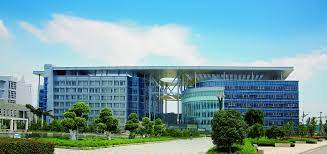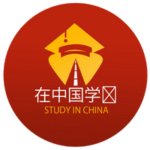Choosing the Right Medical College: Top Factors to Consider for MBBS in China”

Embarking on the journey to pursue a Bachelor of Medicine, Bachelor of Surgery (MBBS) in China is a significant decision, especially for Pakistani students. The choice of the right medical college plays a pivotal role in shaping one’s academic and professional future. Accreditation and Recognition: Begin your selection process by researching the accreditation and recognition of the medical college. Ensure that the institution is recognized by relevant medical bodies and authorities in both China and Pakistan. World Ranking and Reputation: Consider the world ranking and reputation of the medical college. Higher-ranked institutions often provide a more comprehensive and globally competitive education. English-Medium Programs:Confirm that the medical college offers MBBS programs in English. This is crucial for Pakistani students who might find it more accessible to study in a language they are proficient in. Admission Criteria:Understand the admission criteria of the medical college. This includes academic requirements, standardized test scores, and any additional criteria for Pakistani students. Faculty Qualifications:Evaluate the qualifications and experience of the faculty members. A strong and experienced faculty enhances the quality of education provided. Clinical Training Opportunities: Look into the clinical training opportunities offered by the medical college. Exposure to diverse clinical settings is essential for a well-rounded medical education. Infrastructure and Facilities: Assess the infrastructure and facilities of the medical college. State-of-the-art laboratories, libraries, and medical equipment contribute to a conducive learning environment. Alumni Success: Research the success stories of alumni. The achievements of former students can provide insights into the effectiveness of the medical college’s education and training. Accredited Hospitals for Internship: Check if the medical college has affiliations with accredited hospitals for internships. Internship experiences are critical for practical skill development. Language Support Services:Ensure that the medical college provides language support services for international students, including language classes if needed. Living Costs and Accommodation: Consider the overall living costs in the city where the medical college is located. Additionally, explore the accommodation options provided by the institution. Scholarships and Financial Aid : Look into the availability of scholarships and financial aid for Pakistani students. Financial support can significantly ease the burden of tuition fees. Cultural Integration:Assess how well the medical college integrates international students into the local culture. A supportive and inclusive environment fosters a positive learning experience. Safety and Security :Evaluate the safety and security measures in place for students, both on-campus and in the surrounding areas. International Collaborations: Explore whether the medical college has international collaborations and exchange programs. Exposure to a global network can broaden your perspectives. Research Opportunities: Check for research opportunities available to students. Engaging in research enhances critical thinking and contributes to the advancement of medical knowledge. Licensing Exam Preparation :Inquire about the resources and support provided to prepare for licensing exams in both China and Pakistan. Student-to-Faculty Ratio: Consider the student-to-faculty ratio. A lower ratio often indicates better access to faculty and personalized attention. Alumni Network: Investigate the strength and reach of the medical college’s alumni network. A well-established network can provide valuable connections for future career opportunities. Community Engagement: Examine the medical college’s involvement in community health initiatives. Community engagement enhances practical learning experiences and instills a sense of social responsibility. Distance from Home: Consider the distance from home. Being closer to Pakistan may offer a sense of familiarity and easier access for visits. Admission Test: Check if the medical college requires a specific admission test and prepare accordingly. Visa Support Services: Verify if the medical college provides assistance with visa processes to facilitate a smooth transition for Pakistani students. Extracurricular Activities:Explore the availability of extracurricular activities. A balance between academics and extracurriculars contributes to a holistic education. Medical Specializations Offered: Evaluate the range of medical specializations offered. Choose a medical college that aligns with your specific areas of interest in the field. Technology Integration in Education: Assess how technology is integrated into the educational curriculum. Modern teaching methods enhance the learning experience. Support Services for International Students: Check for support services dedicated to international students, including counseling and academic support. Accessibility to Transportation: Consider the accessibility of transportation facilities, making it convenient for students to travel within the city. Language of Daily Communication: Determine the language commonly spoken in the region. Knowing the local language can facilitate daily communication. Adaptability Programs: Explore if the medical college offers adaptability programs to help international students acclimate to the new environment. Student Reviews and Testimonials: Read reviews and testimonials from current and former students to gain insights into their experiences. Regulatory Compliance: Ensure that the medical college complies with the regulatory standards set by both Chinese and Pakistani medical authorities. Cultural Sensitivity Training: Check if there are programs or training sessions focused on cultural sensitivity, essential for interacting with patients from diverse backgrounds. Continuous Medical Education Programs: Explore if the medical college offers continuous medical education programs to keep students updated on the latest advancements in the field. Diversity in Student Body : Consider the diversity in the student body. Interacting with peers from various backgrounds enriches the overall learning experience. Emergency Medical Services: Verify the availability of emergency medical services on campus for prompt medical assistance. Health Insurance Coverage: Check if the medical college provides health insurance coverage for international students. Religious Accommodations: For Pakistani students, inquire about accommodations for religious practices to ensure a supportive environment. Social Integration Activities: Explore whether there are organized activities to facilitate social integration among international and local students. Admission Consultancy Services: Consider seeking assistance from admission consultants with experience in placing Pakistani students in Chinese medical colleges. Student Counseling Services: Check for the availability of student counseling services to address academic and personal concerns. Community Amenities: Evaluate the amenities available in the surrounding community, including markets, hospitals, and recreational areas. Clinical Simulation Facilities: Verify the presence of clinical simulation facilities, aiding in practical skill development.
Overview of Studying in China: A Global Perspective
introduction China, with its rich cultural heritage and rapid economic growth, has become a prominent destination for international students seeking academic excellence and cross-cultural experiences. This blog aims to provide a comprehensive overview of studying in China, exploring the diverse facets that make it an increasingly popular choice for students worldwide. Educational Landscape: China boasts a diverse and expansive educational landscape, comprising world-renowned universities and institutions. From ancient institutions with centuries of history to modern, cutting-edge research canters, students have a wide array of choices. The emphasis on academic rigor, technological innovation, and a global outlook positions Chinese universities among the top-ranking institutions globally. Academic Programs: One of the key attractions for international students is the breadth and depth of academic programs offered in China. From undergraduate to doctoral levels, a multitude of disciplines are available, including science and engineering, business, medicine, and the arts. Many programs are taught in English, making them accessible to a global student body. Language Opportunities: While English-taught programs are prevalent, studying in China also offers an excellent opportunity to immerse oneself in the Mandarin language. Learning Mandarin can be a valuable asset in an increasingly interconnected world, providing students with a competitive edge in their future careers and fostering a deeper understanding of Chinese culture. Cultural Experience: Beyond the classrooms, studying in China offers a rich cultural experience. The country’s ancient history, vibrant traditions, and diverse landscapes provide a backdrop for students to explore and learn. From the Great Wall to bustling city markets, students can engage in a cultural tapestry that extends far beyond the academic realm. Global Perspective: China’s global influence extends to its education sector. Many universities actively promote internationalization, welcoming students from around the world. This global perspective is embedded in curricula, fostering an environment where students gain insights into global issues, diverse perspectives, and cross-cultural communication, preparing them for a globally interconnected future. Technological Advancements: China’s rapid technological advancements are mirrored in its educational institutions. State-of-the-art campuses, cutting-edge research facilities, and a focus on technology-driven learning create an environment that aligns with the demands of the modern world. Students benefit from exposure to the latest innovations, positioning them at the forefront of their fields. Scholarship Opportunities: The Chinese government and various institutions offer a range of scholarships to international students, making education in China financially accessible. These scholarships often cover tuition, accommodation, and even provide a stipend, enabling students to focus on their studies without the burden of excessive financial constraints. Networking and Career Opportunities: Studying in China opens doors to vast networking opportunities and potential career advancement. The country’s booming economy and global connections create an environment where students can connect with industry leaders, engage in internships, and lay the foundation for a successful career path, whether in China or on the international stage. Innovative Teaching Methods: China’s commitment to educational excellence is reflected in its adoption of innovative teaching methods. Beyond traditional lectures, many institutions incorporate experiential learning, research projects, and collaborative initiatives. This dynamic approach not only enhances students’ academic experience but also cultivates critical thinking, problem-solving skills, and a spirit of innovation – essential qualities for success in today’s fast-paced world. Rich Extracurricular Activities: Studying in China offers students a plethora of extracurricular activities, allowing them to explore their interests beyond academics. From cultural clubs to sports teams and entrepreneurial initiatives, universities actively encourage students to engage in a diverse range of activities. This holistic approach contributes to personal development, fostering well-rounded individuals poised for success in their chosen fields. Safety and Quality of Life: China prioritizes the safety and well-being of its international students. With modern infrastructure, efficient public transportation, and a low crime rate, students can navigate the country with ease. Additionally, the cost of living in China is often more affordable compared to Western countries, providing students with a high-quality lifestyle without excessive financial burdens. Healthcare Facilities and Wellness Programs: The well-being of students is a top priority in China, and universities often provide comprehensive healthcare facilities and wellness programs. Access to modern medical services, wellness workshops, and recreational activities ensures that students maintain a healthy work-life balance, fostering both physical and mental well-being. Environmental Diversity: From the urban skylines of Shanghai to the serene landscapes of Guilin, China offers a remarkable diversity of environments. This not only adds to the cultural experience but also allows students to choose a setting that aligns with their preferences. Whether immersed in the vibrant city life or surrounded by the tranquility of nature, students can tailor their study environment to suit their lifestyle. Global Alumni Network: China’s growing influence in global affairs has led to the establishment of a vast and influential alumni network. Graduates from Chinese universities find themselves part of a global community, providing networking opportunities and connections that extend far beyond graduation. This network becomes a valuable asset in career development, opening doors to international opportunities and collaborations. Support for International Students: Recognizing the unique challenges faced by international students, Chinese universities provide robust support services. These include language assistance programs, cultural integration initiatives, and dedicated international student offices. Such support ensures a smooth transition for students, allowing them to focus on their studies and make the most of their time in China. Culinary Adventure: Chinese cuisine is renowned worldwide for its diversity and flavors. Studying in China offers a culinary adventure, allowing students to savor a wide array of regional dishes. From Peking duck in Beijing to dim sum in Guangzhou, students can explore the richness of Chinese cuisine, adding a delicious dimension to their overall cultural experience. Art and Innovation Hubs: China’s cities are not just economic powerhouses but also vibrant hubs of art and innovation. Students have the opportunity to immerse themselves in a thriving cultural scene, attending art exhibitions, music festivals, and technological expos. This exposure enhances their cultural awareness and provides a unique lens through which to view the intersection of tradition and modernity in China. In essence, studying in China transcends the academic realm, offering

